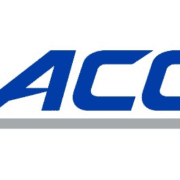— courtesy of The ACC
FOR IMMEDIATE RELEASE
Tuesday, November 27, 2018
@ACCFootball
Upcoming ACC Football Schedule:
Saturday, Dec. 1, Time, TV, Sirius, XM, Internet
2018 Dr Pepper ACC Football Championship Game
Clemson (12-0) vs. Pitt (7-5), 8 p.m., ABC, 84, 84, 84
Series: Pitt leads, 2-0; Last meeting: Pitt, 43-42 (Nov. 12, 2016)
ABC: Chris Fowler, Kirk Herbstreit, Maria Taylor
ESPN Radio: Bill Rosinski, David Norrie, Molly McGrath
East Carolina (3-8) at NC State (8-3), Noon, ACCNE, 134, 387, 977
Series: NC State leads, 16-13; Last Meeting: East Carolina 33-30 (2016)
ACCNE: Kevin Fitzgerald, Stan Lewter
Marshall (8-3) at Virginia Tech (5-6), Noon, ACCNE
Series: Virginia Tech leads, 10-2; Last Meeting: Virginia Tech 29-21, 3ot (2013)
ACCNE: Josh Appel, Hutson Mason
Setting the Scene
Matchup: No. 2 Clemson will face Pitt in the 2018 Dr Pepper ACC Football Championship Game on Saturday, Dec. 1, at Bank of America Stadium in Charlotte, North Carolina. Coastal Division Champion Pitt will be making its first appearance in the game, while Atlantic Division Champion Clemson returns for the fourth straight season and sixth time overall. Clemson is trying to become the first team in ACC history to win four consecutive league championship games.
Prime Time Kickoff: The game will kick off at 8 p.m. and will be televised by ABC. This marks the 10th consecutive year the game has been televised in prime time.
Advancing: The winner of the conference championship game has gone on to play in the National Championship Game or compete in the College Football Playoff each of the previous five seasons.
Atlantic Division holds Championship Advantage: The Atlantic Division team has won nine of 13 previous Dr Pepper ACC Football Championship games, including the last seven in a row. Florida State (4) and Clemson (4) have the most titles. The last Coastal Division team to win the championship game was Virginia Tech in 2010.
Perfect Record: Clemson, which clinched a spot in the game three weeks ago with a win over Boston College, finished a perfect 8-0 in the Atlantic Division. The Tigers have won the last three ACC titles.
Previous Meetings: Clemson and Pitt have met just twice previously on the gridiron with the Panthers holding a 2-0 lead. Pitt beat Clemson, 34-3, in the 1977 Gator Bowl, and knocked off the Tigers, 43-42, in Clemson’s 2016 National Championship season.
Representing the ACC: Pitt, which joined the ACC in 2013, is the sixth different team to represent the Coastal Division in the last six years. The Panthers are the 10th different program to play in the game. Virginia Tech and Clemson lead all teams with six overall appearances, followed by Florida State with five.
Atlantic
• Clemson (2009, 2011, 2015, 2016, 2017, 2018)
• Florida State (2005, 2010, 2012, 2013, 2014)
• Boston College (2007, 2008)
• Wake Forest (2006)
Coastal
• Pitt (2018)
• Miami (2017)
• Virginia Tech (2005, 2007, 2008, 2010, 2011, 2016)
• North Carolina (2015)
• Georgia Tech (2006, 2009, 2012, 2014)
• Duke (2013)
Bowl Eligibility: Ten ACC teams are bowl eligible, including Clemson (12-0), Syracuse (9-3), NC State (8-3), Boston College (7-5), Duke (7-5), Virginia (7-5), Georgia Tech (7-5), Pitt (7-5), Miami (7-5) and Wake Forest (6-6). Virginia Tech (5-6) is one win away from postseason eligibility and plays Marshall on Saturday at noon. A win would extend the nation’s longest active bowl streak to 26. The ACC leads all conferences with 21 bowl bids over the last two years (11 in 2016, 10 in 2017).





